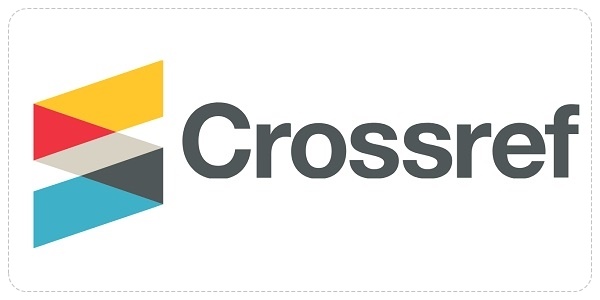OPEN CLASSROOM CLIMATE: PROJECT CITIZEN MODEL IN CIVIC EDUCATION LEARNING ACTIVITY
Abstract
Abstrak
Pembelajaran pendidikan kewarganegaraan berbasis portofolio berupaya untuk fokus pada siswa agar memiliki pengetahuan dan pemahaman, keterampilan dan sikap, nilai-nilai, dan disposisi yang mengarahkan mereka secara aktif berpartisipasi dalam berperan dan tanggung jawab di dalam kehidupan mereka sehari-hari. Siswa belajar secara mandiri dalam kelompok kecil dengan difasilitasi oleh guru dan menggunakan berbagai sumber belajar di sekolah dan di luar sekolah. Project citizen memberikan keyakinan kepada siswa memiliki kemampuan untuk memberikan analisis masalah, mengumpulkan tugas, dan menjadi lebih kreatif. Iklim kelas terbuka menjadi faktor penting dalam membangkitkan motivasi dan minat siswa dalam pembelajaran pendidikan kewarganegaraan sehingga tercipta interaksi dan hubungan yang demokratis di dalam kelas. Penelitian kuantitatif dengan metode kuasi eksperimen dilakukan pada kelas eksperimen dan kelas kontrol sebanyak enam kali pertemuan (enam minggu) untuk melihat perbedaan implementasi diantara kedua kelas yang berbeda berdasarkan aspek motivasi, interaksi dan kerjasama di dalam kelompok. Temuan dari penelitian ini adalah: (1) pengalaman belajar yang terintegrasi memberikan kesadaran kepada siswa bahwa keseimbangan antara hak dan kewajiban sangat penting sebagai warga negara dan mencari solusi alternatif untuk penyelesaian masalah di sekitar siswa/masyarakat; (2) secara signifikan model belajar ini meningkatkan aktivitas kerjasama dan motivasi siswa.
Abstract
Civic education portfolio-based learning seeks to focus on students' ownership of knowledge and understanding, skills and attitudes, values, and dispositions that lead them to actively participate in their roles and responsibilities in their lives. Students learn independently in small groups with facilities from teachers and use a variety of learning resources at school and outside of school. Project citizen gives students confidence that students have the ability to provide problem analysis, collect tasks, and be more creative. The purpose of this research is to explore open classroom climate becomes an important factor in generating motivation and interest in students in civic education learning, thus creating democratic interaction and connection in the class. Quantitative research using the quasi-experiment method was conducted in the experimental class and the control class with a duration of six meeting to analyze the differences between the two classes in motivation, interaction, and teamwork activity aspect. The findings of this study are: (1) integrated learning experiences provide awareness to students that the balance between rights and obligations is very important as a citizen and look for alternative solutions to problems around the community; (2) significantly this learning technique increase student cooperation performance and motivation.
Keywords
Full Text:
PDF (Bahasa Indonesia)References
Adha, M. M. (2010). Model Project Citizen untuk meningkatkan kecakapan warga Negara pada konsep kemerdekaan mengemukakan pendapat. Jurnal Kultur Demokrasi, 1 (8): 44-52.
Adha, M. M & Yanzi, H. (2014). Project Citizen Model for Effective Student Engagement and Democratic Citizenship in Civic Education Best Practices. The First Sriwijaya University Learning and Education International Conference Proceedings. Faculty of Teacher Training and Education Sriwijaya University.
Adha, M. M., Yanzi, H, & Nurmalisa, Y. (2018). The Improvement of Student Intelectual and Participatory Skill through Project Citizen Model in Civic Education Classroom. International Journal Pedagogy of Social Studies, 3 (1): 39-50.
Alfiyansah, R. (2016). Penggunaan Media Pembelajaran I-Spring Presenter Untuk Meningkatkan Motivasi Belajar Dan Hasil Belajar Pada Mata Kuliah Keperawatan Dasar Nutrisi. Pedagogia: Jurnal Ilmu Pendidikan, 14 (2): 363-369.
Atherton, H. M. (2000). We the people … project citizen. (Ed), Mann, S. & Patrick, J. J. Education for civic engagement in democracy: Service learning and other promising practices. Indiana: ERIC Clearinghouse for social studies/social science education.
Banks, J. A. (2014). Citizenship Education and Diversity Implications for Teacher Education. Journal of Teacher Education. 52 (1): 5-16.
Budimansyah, D. (2008). PKN dan Masyarakat Multikultural. Bandung: Program Studi PKn SPs UPI.
Budimansyah, D. (2002). Model Pembelajaran dan Penilaian Berbasis Portofolio. Bandung: PT. Ganesindo.
Campbell, D. T. & Stanley, J. C. (2015). Experimental and Quasi-Experimental Designs for Research. Retrieved from https://books.google.co.id/books.
Civiced. (2018). We the people, the citizen and the constitution. Retrieved from http://www.civiced.org/programs
Cogan, J.J. (1998). Citizenship for the 21st Century: An International Perspective on Education. London: Kogan Page Limited.
Erhamwilda. (2014). Peer Counseling Model for Improving Students’ Self-Direction Competence. International Journal of Education, 7 (2): 84-96.
Fry, S. W. & Bentahar, A. (2013). Student Attitudes Towards and Impressions of Project Citizen. Journal of Social Studies Education Research, 4 (1): 1-23.
Halimah, L. (2018). Pengaruh Pembelajaran Pendidikan Kewarganegaraan Terhadap Nasionalisme Peserta Didik Sekolah Menengah Kota Cimahi. Pedagogia: Jurnal Ilmu Pendidikan, 16 (3): 209-224.
Howie, L. D., Lukacks, S. L., Pastor, P. N., Reuben, C. A. & Mendola, P. (2010). Participation in Activities Outside of School Hours in Relation to Problem Behavior and Social Skills in Middle Childhood. Journal of School Health, 80 (3): 119-125.
Kerr, D. (2018). Citizenship Education: an International Comparison. Retrieved from http://www.seameo.org/SEAMEO
Kose, U. (2010). A web based system for project-based learning activities in “web design and programming” course. Procedia - Social and Behavioral Sciences, 2, (2): 1174-1184.
Matroji. (2016). Penerapan Model Group Investigation untuk Meningkatkan Hasil Belajar Siswa Dalam Pembelajaran Sejarah Materi Pengaruh Sejarah Dunia Terhadap Sejarah Bangsa Indonesia Abad 18-20. Pedagogia: Jurnal Ilmu Pendidikan, 14 (2): 356-362.
Mulyoto, G. P. & Samsuri, S. (2017). Pengaruh model project citizen dengan pendekatan saintifik terhadap penguasaan kompetensi kewarganegaraan dalam pembelajaran Pendidikan Pancasila dan Kewarganegaraan. Jurnal Civics: Media Kajian Kewarganegaraan, 14 (1): 105-118.
Nurmalisa, Y & Adha, M. M. (2016). Peran Lembaga Sosial Terhadap Pembinaan Moral Remaja Di Sekolah Menengah Atas. Jurnal Ilmiah Pendidikan Pancasila dan Kewarganegaraan, 1 (1): 64-71.
Nuraeni. (2016). Meningkatkan Kualitas Belalar Mengajar Di Sdn Sukajadi Dengan Penerapan Cooperative Learning Teknik Kepala Bernomor Struktur Pada Semester Genap Tahun Pelajaran 2014/2015. Pedagogia: Jurnal Ilmu Pendidikan, 14 (3): 443-457.
Nusarastriya, Y. H. S., Sapriya., Wahab, A. A. & Budimansyah, D. (2013). Pengembangan berpikir kritis dalam pembelajaran pendidikan kewarganegaraan menggunakan project citizen.
Cakrawala Pendidikan: Jurnal Ilmiah Pendidikan, 3 (3).
Rahayu, G. D. S. & Setiyadi, R. (2018). Penerapan Model Project Citizen dalam Upaya Meningkatkan Kecerdasan Ekologis. Mimbar Sekolah Dasar, 5 (1): 31-42.
Rahayu, A., Suwatno, Suherman, A., & Yuliawati, A. K. (2014). Analysis of Resources-Based Education Management and Its’ Effect on School Advantage. International Journal of Education, 7 (2): 97-102.
Susilawati, A., Hernani, & Sinaga, P. (2017). The application of project-based learning using mind maps to improve students’ environmental attitudes towards waste management in junior high schools. International Journal of Education, 9 (2): 120-125.
Tolo, K. W. (1998). An Assesment of We the People Project Citizen: Promoting Citizenship in Classroom and Communities. Austin: The Boards of Regents University of Texas.
Trisiana, A. (2015). Action for citizenship education of character education using project citizen model at senior high school in Indonesia. International Journal of Education and Psychology in the Community, 5 (1&2): 42-53.
Vontz, T. S., Metcalf, K. K. & Patrick, J. J. (2000). Project Citizen and the Civic Development of Adolescent Students in Indiana, Latvia, and Lithuania. Indiana: Indiana University ERIC, Educational Resources Information Center.
Winataputra, U, S. (2001). Jatidiri Pendidikan Kewarganegaraan Sebagai Wahana Sistemik Pendidikan Demokrasi. Disertasi Doktor pada Sekolah Pascasarjana Universitas Pendidikan Indonesia Bandung: tidak diterbitkan.
Woods, D. R. (2014). Problem-Oriented Learning, Problem-Based Learning, Problem-Based Synthesis, Process Oriented Guided Inquiry Learning, Peer-Led Team Learning, Model-Eliciting Activities, and Project-Based Learning: What Is Best for You?. 53 (13), Industrial & Engineering Chemistry, 53 (13): 5337–5354.
DOI: https://doi.org/10.17509/pdgia.v17i1.13845
Refbacks
INDEXED BY

This work is licensed under a Creative Commons Attribution-ShareAlike 4.0 International License















